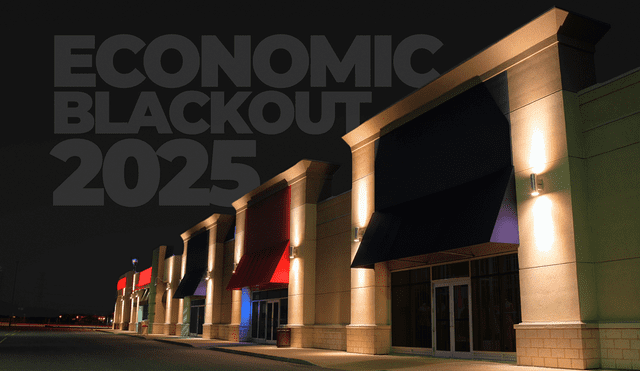Blackout Day 2025: Why consumers are not spending money during today's economic blackout
Learn about Blackout Day 2025, a movement where consumers are not spending money during today's economic blackout. Find out what it means and why people are participating.

On February 28, 2025, a large group of consumers across the U.S. plans to participate in a 24-hour economic blackout, refusing to spend any money in protest of corporate greed, companies rolling back diversity, equity, and inclusion (DEI) efforts, and former President Donald Trump's initiatives to eliminate federal DEI programs. This coordinated effort aims to shed light on various societal issues that have sparked frustration among consumers.
While it’s been a highly publicized event, the economic blackout also aligns with other boycotts targeting companies like Target, Amazon, Nestle, and Walmart due to their stance on DEI. Activists and community groups believe that by withholding consumer spending, they can send a powerful message and influence corporate behavior.
How will the February 28 economic blackout impact businesses?
The February 28 boycott is not an isolated event. It’s part of a larger movement involving multiple protests throughout the year, targeting various companies that are believed to have backtracked on their DEI commitments. Activist groups argue that these actions are necessary to show solidarity with marginalized communities and demand greater accountability from major corporations.
However, despite widespread social media support and viral campaigns, experts caution that the impact of a one-day economic boycott may be limited. Economist Bjorn Markeson points out that the immediate economic effect of such one-day actions is often minimal. Businesses tend to see delayed purchases rather than actual financial losses, making the event more symbolic than financially disruptive.
What other boycotts are planned for 2025?
In addition to the February 28 economic blackout, several other boycotts have been organized for later this year. These include boycotts of Amazon, Walmart, and Target, with some consumer groups and faith-based organizations planning extended actions, such as a 40-day fast or shopping boycott. The Latino community, for example, has called for a #LatinoFreeze, asking supporters to limit spending and support businesses that are aligned with their values.
These coordinated efforts reflect a growing demand for companies to prioritize social responsibility and DEI efforts that benefit both employees and the broader community. As the movement gains momentum, consumers are encouraged to make conscious choices about where they spend their money, with a focus on supporting Black-owned, Latino-owned, and aligned businesses.
Which celebrities are participating in the blackout 2025?
As of now, several celebrities have expressed their support for the February 28, 2025, economic blackout. While a comprehensive list of participants is still emerging, some notable individuals and public figures are expected to join the cause. Here are a few celebrities who are publicly supporting the boycott
- Bette Midler – Best known for her role as Winnifred Sanderson on "Hocus Pocus", the actress voiced her support on social media.
- Cyndi Lauper – The "Girls just wanna have fun" singer also posted a call to action on her Facebook account.
- Jameela Jamil – With a history of supporting progressive causes, this actress is joining the boycott, encouraging others to participate and raise awareness.
instagram prueba













